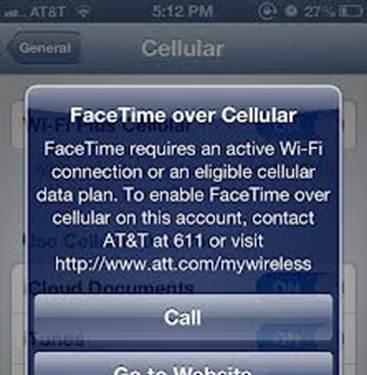You pay for a fixed amount of data, so what rights does ISP
have to decide where you have to use it.
The recent Olympic London 2012 had many touched moments, but
especially there was a remarkable moment to those who are interested in
technology. Throughout the opening ceremony, Sir Tim Berners-Lee tweeted a
message shown in the form of big letters running around the stadium from the
main stage. It was “this is for all of you”.
Tweet of Bernes-Lee is a reminder for how important the
internet become to our life. Therefore, in the past few years, it’s worth
worrying because the political storm are moving toward us due to the way of
Internet access.
The controversy centered round the principle: “the network
neutrality” and it start to become one of the most important controversies
about technology for the next future.
Tim Wu, professor of Columbia law department, the creator of
“network neutrality” recently said that “internet is built based on the
principle that the networks send data to where you want, and everybody is
allowed to contact through internet without being intervened by the
intermediaries. It’s a quite profound principle”.

Keep your internet
open.
Merge the contents and services
The neutrality of the networks supposes that the company which
offers gateways and the web will maintain impartially the content you enjoy and
the websites you visit; treat everyone in the same way. It’s an obvious and
reasonable thing, and that’s how the internet worked till now. But when we
increase the data volume we use, especially when transmitting the videos from
services such as BBC iPlayer and YouTube, there are rumors that some ISPs want
to charge you more in order to assure that the content quality they provide is
still high.

ISPs want to
charge you more in order to assure that the content quality they provide is
still high.
It’s easy to forget that the way we access web is controlled
by just a few company. They possess physical infrastructure which allows the
internet signal to be transmitted between 2 points, and have great power when
our credibility in internet increases.
How do you feel if ISP decides that to access websites, you
definitely have to pay extra charges. For example, if you want to access Facebook,
it will charge you an extra of 5 pounds/month, and YouTube will be 10 pounds.
This script sounds pretty remote but in fact, there are no rules to stop it
from happening.
It’s pretty reasonable when expecting customers to use more
data in order to spend more. But it’s not that simple: IPSs don’t mind how much
data we use except where or from what we use it for.
The maximum bias
Recently, customers who buy iPhone 5 on AT&T network of
America were aware that they can’t use FaceTime feature pre-installed through 3G,
even with the use of the phone within their limited data. We saw the same thing
in England with several networks disable Skype and tethering feature on their
network. According to the theory, the selective attitude toward these services can
be used to speed up competitive services.

Recently,
customers who buy iPhone 5 on AT&T network of America were aware that they
can’t use FaceTime feature
The groups who advocate media reform suxch as Free Press
(freepress.net), who begin the “save internet” campaign (savetheinternet.com), outline
a scary version of the future when they argue that IPSs, and media companies
support them, “want to tax the content providers for the guarantee of a faster
speed of data they provide. They want to distinguish for the preference of
their apps, services and content while slowing down or blocking the opponents’
services”
In 2005, AT&T creates a success when this company
anticipates increasing the cost for some specific web companies in order to
receive preferential treatments to their web traffic. This will have impact
based on the fact that websites who pay will have the higher download speed
than the competitors and create huge advantages for AT&T.
And in 2007, Comcast, a biggest internet and cable provider
in America, is discovered to have intervened in the traffic of the specific
file-sharing websites to make them unusable.
A research of Council of European lawmakers about electronic
communications (BEREC) and European Commission discovers that at least 20% of
the mobile internet users in Europe signed the contract which allowed their IPS
to limit the services such as VoIP and peer-to-peer file sharing. The same
thing is true to the home bandwidth.
The freedom is in jeopardy
Supporters worry that internet will be a series of walled
gardens with strictly controlled and adjusted access by a group of big
companies- each one provide specific services and media. This seems to return
to the age of AOL and CompuServe, the age that clients were locked on their
special web version.
“Big media companies want to take over again” Wu explained.
“Most of the media over the past 150 years was closed. If you consider NBC or
other cable networks, they decide what they have on their network. The threat
is from the fact that broadcast stations, telephone and cable companies get
used to that business model and want to get back to it.
Test the online content
In 2012, SOPA, PIPA an ACTA bills are summited in America
and Europe in the effort of cutting off the online content under the protection
copyright law. If they are passed, IPS will have to adjust the content that
comes through their network. If a website is suspected of containing pirated
material, it can be excluded from the search results. The bills were repealed
after the waves of discontent from the online community, but the entertainment industry is
considered to be preparing for the new bills. Of course, the power of their lobbying
will be listened.
Netherlands is the first European country to pass an act
which stops ISP from charging more the access to the special websites, while Chile
gave a relevant law. The content on network neutrality is so big that even
president Obama talked about it in an interview in 2010. “We have to keep the
internet open”. We don’t want to create many gates to block ones who don’t have
much money but a brilliant idea or we can’t begin their next YouTube or Google
on the internet”- president Obama said.
The demarcation
line was drawn, and this seems to be the problem that is going to
be intensely debated in the next few years and this can decide our online
experiences in the next decades.